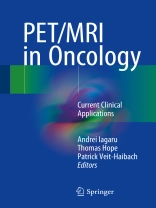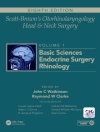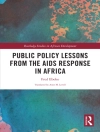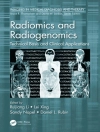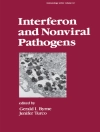In this book, experts from premier institutions across the world with extensive experience in the field clearly and succinctly describe the current and anticipated uses of PET/MRI in oncology. The book also includes detailed presentations of the MRI and PET technologies as they apply to the combined PET/MRI scanners. The applications of PET/MRI in a wide range of oncological settings are well documented, highlighting characteristic findings, advantages of this dual-modality technique, and pitfalls. Whole-body PET/MRI applications and pediatric oncology are discussed separately. In addition, information is provided on PET technology designs and MR hardware for PET/MRI, MR pulse sequences and contrast agents, attenuation and motion correction, the reliability of standardized uptake value measurements, and safety considerations. The balanced presentation of clinical topics and technical aspects will ensure that the book is of wide appeal. It will serve as a reference for specialists innuclear medicine and radiology and oncologists and will also be of interest for residents in these fields and technologists.
Innehållsförteckning
Introduction.- PET technology designs for PET/MRI.- MR hardware for PET/MR.- MR pulse sequences for PET/MR.- MR contrast agents.- PET/MRI: attenuation correction.- PET/MRI: motion correction.- PET/MRI: reliability/reproducibility of SUV measurements.- PET/MRI: Safety considerations.- Functional/Heterogeneity MR techniques in Oncology.- Workflow and protocols considerations.- Whole body applications.- Neuro: Brain Oncology.- Neuro: Head and Neck Oncology.- Lung nodules and lung cancer.- Breast cancer.- Liver – Tom.- Neuroendocrine tumors.- Oesophageal, Gastric, and Pancreatic Cancer.- Rectal cancer.- Gynecologic applications.- Prostate cancer.- Melanoma and multiple myeloma.- MSK oncology.- Lymphoma.- Pediatric oncology.- Future directions.
Om författaren
Dr. Iagaru is an Associate Professor of Radiology – Nuclear Medicine and the Co-Chief of the Division of Nuclear Medicine and Molecular Imaging at Stanford University Medical Center. He completed medical school at Carol Davila University of Medicine, Bucharest, Romania, and an internship at Drexel University College of Medicine, Graduate Hospital, in the Department of Medicine in Philadelphia. He began his residency at the University of Southern California (USC) Keck School of Medicine, Los Angeles, in the Division of Nuclear Medicine, where he was the chief resident. Dr. Iagaru finished his residency and completed a PET/CT fellowship at Stanford University’s School of Medicine in the Division of Nuclear Medicine. His research interests include PET/MRI and PET/CT for early cancer detection; clinical translation of novel PET radiopharmaceuticals; peptide-based diagnostic imaging and therapy; radioimmunotherapy.
Over the past seven years since joining the faculty at Stanford, Dr. Iagaru has received several awards including the Society of Nuclear Medicine (SNM) 2009 Image of the Year Award; American College of Nuclear Medicine (ACNM) Mid-Winter Conference 2010 Best Essay Award; 2009 Western Regional SNM Scientist Award; 2011 SNM Nuclear Oncology Council Young Investigator Award; and a Stanford Cancer Center 2009 Developmental Cancer Research Award in Translational Science. Dr. Iagaru presented more than 90 abstracts at national and international meetings and published more than 60 papers in peer-reviewed journals, as well as 7 book chapters.
Dr. Veit-Haibach is an Associate Professor of Radiology and Nuclear Medicine at the University Hospital in Zurich, Switzerland. He currently serves as the Section Head of the PET/CT-MR and PET/MR Unit in Zurich. He completed medical school at the University in Essen, Germany. During medical school, he completed internships/trainings in Germany, Switzerland, New Zealand and the United States. He started 100 papers in peer-reviewed journals, 7 book chapters and already served as a guest editor for the Seminar in Nuclear Medicine and the European Journal of Nuclear Medicine and Molecular Imaging.
Dr. Thomas Hope is an Assistant Professor in Residence in the Department of Radiology and Biomedical Imaging at the University of California, San Francisco (UCSF), with appointments in the Abdominal Imaging and Nuclear Medicine sections. He completed medical school at Stanford University and completed his residency in Diagnostic Radiology at UCSF. He subsequently returned to Stanford University to complete fellowships in Body MRI and PET/CT. He currently serves as the Director of MRI at the San Francisco VA Medical Center and as co-Director of PET/MRI at UCSF. Additionally, he is the Chair of the PET/MRI Task Force within the PET Center of Excellence for the Society of Nuclear Medicine and Molecular Imaging, as well as serves on the steering committee for LI-RADS (Liver Imaging Reporting and Data System). His research interests include the application of novel MRI techniques, translation of novel PET radiopharmaceuticals, and the development and clinical application of PET/MRI. Dr. Hope has published over 30 papers, and was awarded the Wylie J. Dodds Research Award from the Society of Abdominal Radiology for his evaluation of DOTA-TOC PET/MRI, as well as the Presidents Circle Research Resident Grant and the Roentgen Resident/Fellow Research Award from the Radiological Society of North America.
